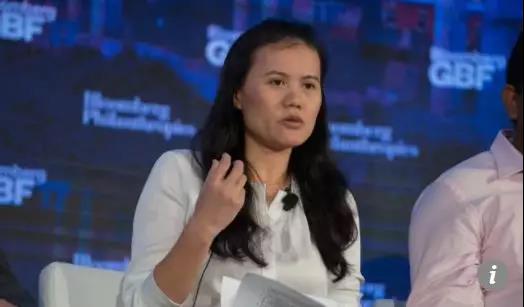
By Edward Tse and Josie Tai
Original published by South China Morning Post on August 22, 2018. All rights reserved.
Female entrepreneurship is on the rise in China. In the 2017 Forbes list of the world’s 56 self-made women billionaires, there were 21 Chinese entrepreneurs, accounting for 37.5 per cent of the total.
In 2017, China’s female/male ratio of an index measuring entrepreneurial activity is 0.87, above the global average of 0.7. The Total Early-stage Entrepreneurial Activity index, published by the Global Entrepreneurship Monitor, reflects the percentage of the 18-64 population who are either a nascent entrepreneur or an owner-manager of a new business.
In fact, female entrepreneurship is not new in China. Among the older generations, women who succeeded include Yang Mianmian, Haier’s co-founder and former president who helped turn the company into one of the leading white-goods makers in the world; Sun Yafang, who was chairwoman of Huawei, the world’s leading telecommunications equipment maker, from 1999 to 2018; and Dong Mingzhu, the former chairwoman of Gree Group, the world’s largest household air conditioner maker. Younger women have also made their mark, such as Lucy Peng Lei, a co-founder of the e-commerce giant Alibaba (owner of the South China Morning Post).
Before 1950, women entrepreneurs were almost unheard of in China. The strict gender roles in Chinese culture mean aspiring businesswomen face many challenges.

Source: SCMP
Why, then, are more Chinese women becoming entrepreneurs, and succeeding? Of course, both the women’s liberation movement in the West and communist China’s promotion of gender equality, especially workplace equality, have had some influence.
A closer look reveals some interesting dynamics. First, China’s women entrepreneurs are young. According to a 2017 report by the Chinese online platform 36Kr and start-up incubator GirlUp, women entrepreneurs in China today tend to concentrate in the 21-30 age group. In the national female workforce, those in the 36-45 age group predominate.
Studies in the past found that successful businesswomen cut their teeth in state-owned enterprises, where they honed their business acumen, improved their managerial skills, and saved up the capital needed to start a business. Today, more are starting from scratch, and starting earlier in their lives.
Failure is no longer stigmatised; in 36Kr’s sample, many women were second- or even third-time entrepreneurs.

Source: SCMP
Second, technology has empowered Chinese women more than ever. Several years ago, traditional sectors such as real estate and logistics were the fastest path to wealth for women. Now, new technologies are helping to unleash the internet-based economy – ranging from e-commerce and ride-hailing services to AI and robotics – that is transforming businesses. The digital economy accounted for about 32 per cent of China’s total gross domestic product in 2017, according to the China Internet Plus Index Report released by Tencent earlier this year.
Women, in particular, perceive the non-traditional industries to have lower entry barriers and a more gender-neutral environment. 36Kr found that 36 per cent of Chinese women entrepreneurs surveyed worked in the digital economy, of which around 64 per cent were in the BAT (Baidu, Alibaba, Tencent) ecosystem.
Tech entrepreneur Gong Haiyan is one of them. She grew up in a poor farming family in Hunan province but made it to university. While in graduate school in Shanghai, Gong paid 500 yuan (US$73) to register with a dating site to find a lifetime partner. But she discovered that the company used stolen profiles. That motivated her to start her own dating service. Like Facebook, Gong’s website, Jiayuan.com, was set up from her college dorm. Today, 15 years later, the site has nearly 190 million registered users across China.

Source: SCMP
Another example is Diane Wang Shutong, who once held senior management positions at Microsoft and Cisco, founded DHgate.com and grew the company into a leading business-to-business cross-border e-commerce platform.
Third, improvements in education attainment have also encouraged more women to strike out on their own. More Chinese are attending university overseas, and many return home to start a business. About 60 per cent of China’s women entrepreneurs were educated abroad; among them, 51 per cent attended college in the US. Having been exposed to a relatively egalitarian culture, they are bolder in seizing opportunities.
While many women entrepreneurs in the past were driven by the “poverty push” to start a business, after being laid off in the restructuring of state-owned enterprises in the 1990s, today’s cohort seem to be more motivated by the “opportunity pull”. The Global Entrepreneurship Monitor has found that today’s women entrepreneurs were more opportunity-driven compared to their predecessors, even their male counterparts.
In other words, instead of seeing entrepreneurship as a last resort, these women chose to start a business because of the perceived opportunities, “pulled” by their personal ambitions and goals of success.
They face several obstacles unique to them, of course, not least gender discrimination. For example, women start-up founders are often underestimated and thus overlooked for financing opportunities, and women businesswomen, like women in other professions, are expected to commit to family and child-rearing responsibilities.
Helping and fostering the next generation of female entrepreneurs will need support from everyone – men and women, government and non-government – to create a level playing field, a safe, sustainable business environment, and a fundamental change in the traditional perception of gender roles.
Edward Tse is founder & CEO of Gao Feng Advisory Company, a global strategy and management consulting firm with roots in Greater China. Josie Tai is a research analyst at the firm.

